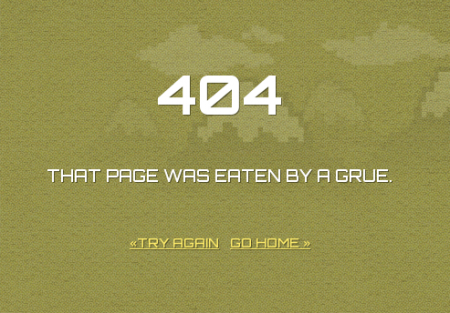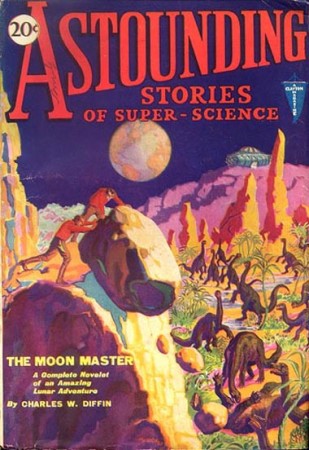With Jussi Parikka, Pau Waelder, Aymeric Mansoux and Mónica Bello. Recorded (VO EN/ES) in Barcelona the 24th of February 2012 as part of the I+C+i Our Life Online session at CCCB.
(more…)
Posts Tagged ‘communication’
Identity and Simulation. Artificial Life on the Networks
Wednesday, March 21st, 2012Tags: agents, alien, Barcelona, bots, cats, CCCB, communication, Facebook, Internet, panel, presentation, social networks, suicide machine, transparency, VIDA, video, web 2.0, youtube
Posted in contextual | 1 Comment »
Mozilla Game On and the Open Web mystery
Thursday, February 3rd, 2011
“Game On 2010 is Mozilla Labs’ first international gaming competition. Game On is all about games built, delivered and played on the open Web and the browser.”
That sounds good, he? That’s what we thought too, and the reason why we submitted Naked on Pluto to the competition. Our game is entirely free software, developed with free software, makes use of the latest open standards but most importantly tries to look from a critical angle to the open Web and its glossy origin, Web 2.0. We did not enter to win (it would be nice of course!) but to have the opportunity to get feedback on our work from an interested audience and experts of the field.
So we thought.
(more…)
Tags: communication, competition, game on, mozilla, mystery, open web, script writing, web
Posted in contextual | 6 Comments »
Plutonian Striptease VII: Florian Cramer
Saturday, October 9th, 2010
Plutonian Striptease is a series of interviews with experts, owners, users, fans and haters of social media, to map the different views on this topic, outside the existing discussions surrounding privacy.
Florian Cramer‘s background is comparative literature and art history with a focus on experimental arts, media, poetics and aesthetics. From 2006 to 2010, he was responsible for the Networked Media Master programme of the Piet Zwart Institute. Since 2008, he works as an applied research professor (Dutch: “lector”) supervising the research programme Communication in a Digital Age of the Piet Zwart Institute.
Social networks are often in the news, why do you think this is?
I see two major reasons: One, social networks have popularized classical Internet communication with accessible interfaces. So finally, everyone – including journalists – understands Internet as more than just an electronic distribution channel, and has also been cured from the “cyberspace”, “hypermedia” and “virtual reality” memes. But as a result, functionality and communication culture that has always been a core feature of the Internet is falsely being perceived as new, as a “social media revolution”.
The second reason is widespread job anxiety among the makers of the traditional news media, and those who indirectly live on the food chain of classical mass media production. Research suggests that younger people devote most of their media attention to social networks and “Web 2.0” services. At the same time, nobody except Google and, to a lesser degree, Facebook has figured out a revenue model for them. They help making traditional media marginal, but don’t create equivalent work opportunities for ‘creatives’ – designers, writers, etc. Contrary to the common belief that “social media” brought a shift from centralized one-to-many communication to a decentralized and self-organized model, just the opposite is true in regards to media ownership. A culture of countless local newspapers and TV stations, for example, is being replaced with a few global players in the Internet. The days where filmmakers could live from making MTV video clips, where critics could survive outside academia as newspaper and magazine writers and artists lived from jobs in the advertising industry are almost over. The strong news media coverage of social network mirrors the respective anxiety of the editors. (more…)
Tags: advertisement, communication, data leaks, data mining, EULA, illusion of intimacy, interface design, Internet, jobs, privacy, self-surveillance, social networks, web 2.0
Posted in contextual, interview | 4 Comments »
Plutonian Striptease III: Geoff Cox
Wednesday, September 22nd, 2010
Plutonian Striptease is a series of interviews with with experts, owners, users, fans and haters of social media, to map the different views on this topic, outside the existing discussions surrounding privacy.
Geoff Cox is currently a Researcher in Digital Aesthetics as part of the Digital Urban Living Research Center, Aarhus University (DK). He is also an occasional artist, and Associate Curator of Online Projects, Arnolfini, Bristol (UK), adjunct faculty, Transart Institute, Berlin/New York (DE/US) and editor for the DATA Browser book series (published by Autonomedia).
Social networks are often in the news, why do you think this is?
Social networks, or more specifically the social web, are bound up with vested interests and the social imaginary. They have become key sites for entertainment, making business and even doing politics. Along with this, and as communications technologies become key sites for various forms of contestation, there are bound to be some juicy stories. In addition, social networks are becoming the apparatus of the news. On the one hand, there is the use of platforms for various kinds of social movements and alternative news gathering, and on the other, the old news apparatus is adapting itself to new kinds of distribution channels – rather like selling any other product. (more…)
Tags: communication, data, ethics, EULA, friends, Internet, marketing, ownership, privacy, property, rights, social networks, trading, venture capital, web 2.0
Posted in contextual, interview | 2 Comments »
The Art of Surviving in Simcities
Saturday, June 26th, 2010Here is a post from a chapter that I wrote for the Walled Garden publication released in 2009 by Virtueel Platform as a follow up of the 2008 Walled Garden conference in Amsterdam. The book was edited by Annet Dekker en Annette Wolfsberger. Reading my paper again today, I did not change my mind on the issues of “information exhibitionism” and “privacy as currency for gratis services”, but I would certainly mention the recent discussions that are happening in the GNU Social list, as well as several other efforts to develop social software as a distributed infrastructure.
Introduction
Used and abused by many, the notion of “2.0, 3.0, x.0” is mostly jargon that inherited its vagueness from a desire to inflate technological value and its cultural impact. This is nothing but a commercial attempt to resuscitate the dotcom era by promising a future of connected services and communication. Unfortunately there is nothing new in terms of network infrastructure nor in terms of how people have used the Internet to date. At most, another layer of abstraction has been built on pre-existing technology, and some interoperability has been added in terms of data exchange. It doesn’t matter though, if all this vapour ends up either up in the clouds, or stuck in condensation on some forgotten server. All of us are experiencing how the use of the Internet and the growing dependence on computation has a serious impact on our everyday lives. There is no need to pretend this is a side effect of new web application trends and their social impact. On the contrary, the transition phase we are experiencing now is rather simple to understand: humanity has started its slow shift from total offline activity to complete online and digitally assisted life. (more…)
Tags: API, black box, cloud computing, cloud storage, communication, data, data centers, distributed, floss, free software, Internet, marketing, open source, privacy, social networks, virtueel platform, walled garden, web 2.0
Posted in contextual | No Comments »